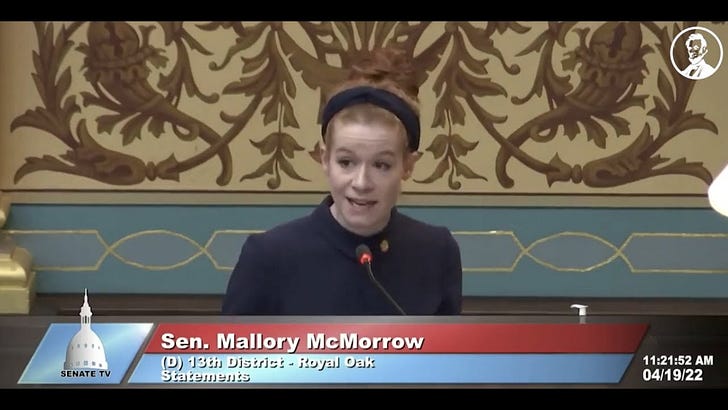Welcome back Chaise Lounge readers and happy Women’s History Month! As we all watch with worry and concern what is unfolding in Ukraine, it can bring up feelings of anxiety for many of us. While there is no magical answer to the problem, we can lean on one another to talk about our worries. Consider this a recommendation to talk with trusted people in your life if you are feeling overwhelmed by the news. The regular women of Ukraine are stepping into the fight by learning to fire weapons they never thought they would hold. And while I hope to never be in that situation myself, I applaud their courage and resolve.

In Economic News
Which states are best for women? Worst?
WalletHub compared the 50 states and the District of Columbia across key factors in “Women’s Economic & Social Well-Being” and “Women’s Health Care & Safety”. Within those categories, they created 25 metrics weighting each one individually. The results can be seen here and are quite interesting. Take a look at where your state ranks and consider this list the next time you think about relocation. I know that I will continue to advocate for North Carolina to move to the top 10 from 31st!
Effects of occupational segregation linger
Katica Roy, a gender economist, writes that occupational segregation by gender leads to women being paid less for decades. In this article, she discusses the devaluation effect which “shows that the average pay within an occupational category is inversely related to the percentage of women in that occupation. This relationship holds even after controlling for factors such as education and experience.” And when men join a field traditionally held by women, magically pay increases. Wage inequities were codified during FDR’s National Recovery Administration because, at the time, the general public did not believe that women should be working full time. But we are in a different day and age now and we need leadership that will call for equitable pay for jobs that women traditionally hold. Teaching and nursing, two fields that were completely overwhelmed by the pandemic, are just two that deserve higher pay. With workers leaving both fields at record rates, I suspect that pay will increase, at least a bit, to entice workers back. But will it be enough? Only time will tell.
In Legal News
Pregnant people excluded from enforcement of living wills
“Singling out pregnant people–or any other demographic group–by taking away their autonomy to make their own healthcare decisions is blatantly discriminatory and offensive,” said Kevin Díaz, the chief legal advocacy officer for Compassion & Choices. You might think this quote is discussing a woman’s right to choose whether to continue a pregnancy, but in reality, it is about her right to have her advance directives or living will honored even when she is pregnant. Idaho and 10 other states exclude pregnant people from enforcing their advanced medical directives turning them into gestational incubators rather than individuals with rights. A group of women in Idaho sued the state, and the court sided with pregnant people. Now the state must remove the exception of pregnant people from their forms.
Is forced sterilization legal in your state?
The National Women’s Law Center released a chilling report on the state of forced sterilization laws across the country. Thirty-one states and the District of Colombia allow forced sterilizations. Women with intellectual disabilities make up the majority of the recipients of forced sterilizations. While many of these women are capable of being mothers, they are not given the chance to do so or proper sex education. And many times, they are not even told the true purpose of the operation. This shameful practice takes away their bodily autonomy under the guise of benevolence. Check the report to see what your state says about forced sterilization.
In Health News
Apple’s Women’s Health Study looks at PCOS rates and heart health
Polycystic Ovarian Syndrome (PCOS) is a condition that about 12% of women live with according to a new study published by Harvard’s T.H. Chan School of Health as part of Apple’s Women’s Health Study. Many women have difficulty getting a diagnosis with the mean age being 22 years of age. This study is one of the first to look at the connection between menstrual cycles and heart health. The research indicates that those with “PCOS diagnoses were four times more likely to have pre-diabetic conditions, three times more likely to have Type 2 diabetes and twice as likely to have high blood pressure and high cholesterol. It also said irregular heartbeats or arrhythmia was more common among participants with PCOS diagnoses than those without.” The researchers cautioned that these were preliminary insights taken from over 37,000 study participants. Given the difficulty of obtaining a PCOS diagnosis and the lack of literature surrounding women’s heart health, this study will no doubt reveal new and important health information for women.
And finally, I imagine most of you have seen this video by now, but this Ukrainian woman’s resolve in the face of an armed soldier is so moving that I feel the need to rewatch it over and over.














Share this post